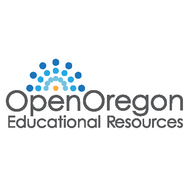Western Civilization: A Concise History - Volume 3
(View Complete Item Description)Western Civilization: A Concise History is an Open Educational Resource textbook covering the history of Western Civilization from approximately 8,000 BCE to 2017 CE. It is available in three volumes covering the following time periods and topics: Volume 1: from the origins of civilization in Mesopotamia c. 8,000 BCE through the early Middle Ages in Europe c. 1,000 CE. Volume 1 covers topics including Mesopotamia,Egypt, Persia, Greece, Rome, the Islamic caliphates, and the early European Middle Ages. Volume 2: from the early Middle Ages to the French Revolution in 1789 CE. Volume 2covers topics including the High Middle Ages, the Renaissance, the European conquest of the Americas, the Reformation, the Scientific Revolution, and the Enlightenment. Volume 3: from the Napoleonic era to the recent past. Volume 3 covers topics including the Industrial Revolution, the politics of Europe in the nineteenth century, modern European imperialism, the world wars, fascism, Nazism, and the Holocaust, the postwar era, the Cold War, and recent developments in economics and politics.
Material Type: Textbook




















